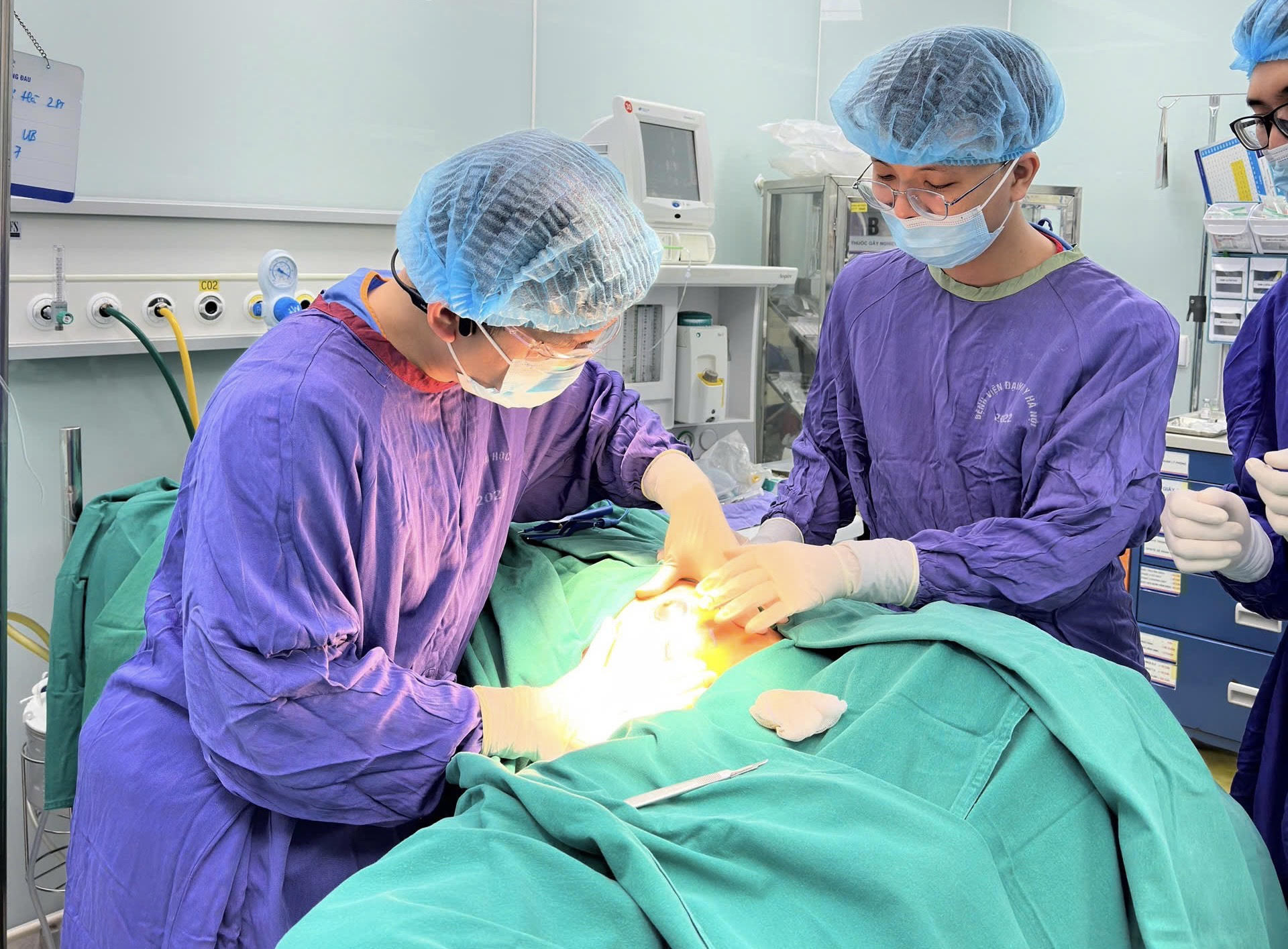Following VietNamNet’s investigative series Beware of TikTok “doctors”, many physicians have come forward to share heartbreaking stories about patients who were misled by online medical advice.
Dr. Tran Xuan Vinh, Deputy Director of the Oncology Center at Phu Tho General Hospital, recounted the case of H.T.X., a 59-year-old woman from Viet Tri City, Phu Tho. She had been diagnosed with stage III breast cancer in her right breast. After five rounds of chemotherapy, she responded well, and doctors had already scheduled surgery, with the goal of complete recovery.
However, the patient suddenly discontinued treatment and returned home to drink herbal teas made from papaya leaves and asparagus water, and to take dietary supplements - based solely on recommendations found on TikTok and other social media platforms.
Three months later, she returned to the hospital. By then, the tumor had invaded the entire chest, spread to the other breast, and metastasized to the lungs. There was no longer any chance for curative treatment.
According to the World Health Organization (WHO), over 70% of stage III breast cancer patients can be saved if they follow appropriate treatment protocols. Research by the U.S. National Cancer Institute confirms that chemotherapy can shrink tumors, increase the likelihood of successful surgery, and reduce recurrence rates.
Yet many patients choose to believe online claims suggesting that papaya leaves or dietary supplements can cure breast cancer.
Master’s degree holder and physician Dr. Ngo Van Ty of the Oncology Center at Hanoi Medical University Hospital shared a similar story. A 39-year-old woman from Bac Giang came to the hospital with one breast swollen and painful.
She had previously been diagnosed with a thyroid tumor but refused treatment. Instead, she followed advice on TikTok, which claimed that papaya leaf tea could dissolve tumors. She drank it regularly for an extended period. By the time she sought medical help, the thyroid tumor had compressed her neck and she had also developed late-stage breast cancer.
According to the Clinical Nutrition Center at K Hospital (Hanoi), papaya leaves have been studied for their potential anti-cancer properties. In vitro studies show that extracts from dried papaya leaves may inhibit the growth of certain cancer cells and regulate tumor-related genes. However, the extraction process is complex and requires meticulous techniques.
More importantly, papaya leaves - despite potential benefits - can also interact with medications. Patients should never self-medicate using natural herbs without guidance from healthcare professionals.
Reflecting on such cases, Dr. Ngo Van Ty explained that while doctors can propose treatment plans and outline potential risks, they cannot force patients to comply. “We do our best to persuade them, but many still refuse, choosing instead to believe flashy online claims that promise fast, miraculous cures,” he said.
“In contrast, scientifically accurate medical explanations are often dry and don’t offer instant hope.”
"Some patients come back in critical condition, when nothing can be done. This leads not only to the loss of life but also a waste of time and financial resources," Dr. Ty added.
Phuong Thuy
